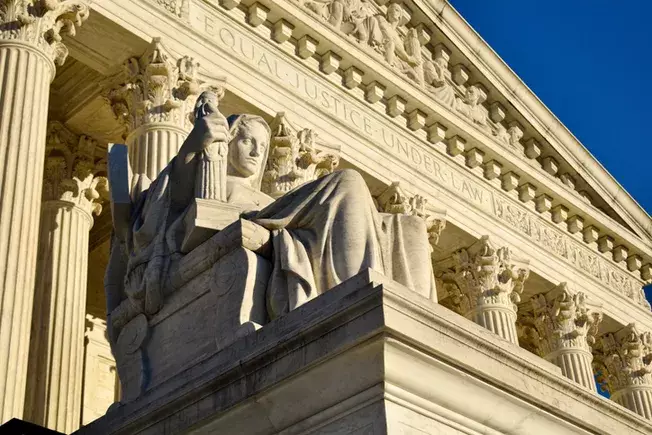As the deadline approaches for the popular social media platform TikTok, the stakes have never been higher. With over 170 million American users, the application faces an existential crisis as it confronts a potential ban under the “Protecting Americans from Foreign Adversary Controlled Applications Act.” Scheduled for January 19th, this proposed action has been fueled by growing concerns regarding TikTok’s connections to the Chinese government and allegations of its potential for data collection and dissemination of propaganda. The clock is ticking for TikTok to navigate these regulatory hurdles, and the implications of its fate extend far beyond mere app functionality.
The primary contention surrounding TikTok revolves around national security. U.S. officials have articulated fears that the app could be leveraged to harvest sensitive data or further foreign interests. In the legal battleground, TikTok’s appeal against the proposed ban was initially dismissed by the U.S. Court of Appeals for the District of Columbia Circuit. Subsequently, the U.S. Supreme Court’s involvement signifies that TikTok may be at one of its last crossroads, grappling with the complexities of national security laws and First Amendment rights. As arguments are presented, early feedback from the justices leans toward upholding the ban, though notable reservations about First Amendment implications linger.
The legal mechanism behind the ban raises serious questions about the intersection of free speech and national security. TikTok’s legal team emphasizes that the planned legislation infringes on the First Amendment rights of its users. However, the government could enforce national security measures that supersede such rights, complicating TikTok’s chances of a favorable verdict. As the date of reckoning approaches, the app’s potential demise seems ominously tangible. American users may find themselves watching the platform they rely on for entertainment, news, and social connection fade away as resources are pulled and applications cease to function.
The anticipated disruption will not manifest overnight; rather, it will be a gradual phasing-out process. Users will likely see diminished access to updates, features, and customer support from TikTok’s parent company, ByteDance. Should the ban take effect, TikTok will effectively become a relic for American users, and millions will face the battle of replacing their content-sharing habits with another platform, an effort that can be arduous considering the unique attributes and community dynamics that TikTok fosters.
Complications extend into the political arena, with the incoming Trump administration expressing a desire to intervene on behalf of the platform. While Trump’s legal team has sought various avenues, including amicus briefs and possible extensions regarding the ban’s enforcement, the legislative and legal landscape poses deep challenges. Even if an extension is granted, political maneuvering might come with unintended consequences, especially given that Congress had previously endorsed the legislation unanimously.
There have been talks around a potential sale of TikTok to U.S. investors—an option viewed as a potential lifeline. Yet, the clock continues to tick, and ByteDance has not signaled a commitment to pursuing such an acquisition. The impasse creates a high-stakes drama in which the fate of TikTok hangs in the balance, with imminent deadline pressures adding to the uncertainty.
Amidst the quagmire, it is evident that this situation represents more than just a legal dispute; it underscores a significant cultural and technological crossroads in the ongoing conversation about digital rights, privacy, and national security in America. Should the ban come to fruition, it would set a precedent for how foreign entities can operate within U.S. borders and signal a more aggressive posture toward data sovereignty and tech regulation.
As we await a decisive ruling from the Supreme Court, the outcome could reshape the landscape for technological and social media platforms in the United States. Furthermore, the ramifications would extend well beyond TikTok, affecting how future foreign apps are perceived and scrutinized through the lens of national security, freedom of speech, and user privacy rights.
While TikTok may be embroiled in urgent legal battles, the broader implications speak to fundamental questions regarding the intersection of technology, governance, and user rights. With the ban looming, what remains visible is not just the plight of a single app but a saunter into a new era of digital communication that begs careful consideration and foresight.


Leave a Reply